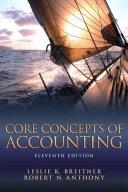accounting
Say-no-to-cheating ("Say-no") provides online proctoring (i.e., exam invigilation) services. There has been a huge increase in demand for its services due to the COVID-19 pandemic. Hence, the operations director is considering (i) investing in an automated system to enable Say-no to start providing automated services, or (ii) giving more work to their part-time staff. The table below provides information on the automated system. Automated System Total capitalized costs (e.g., costs of planning, $150,000 programming, testing of prototype and debugging) Useful life 5 years Investment allowance (in Year 0) 15% Investment in working capital (in Year 0) $5,000 Annual costs of operating and maintaining the system $10,000 Disposal value $0 Additional information: If option (ii) is adopted, the accountant estimates that the workload of each part-time staff will double. Each part-time staff used to work about 8 hours per week. The total wages paid to them is estimated to double to $160,000 per year (from $80,000 per year). Other costs are not expected to change substantially. The investment in working capital is the same for both options. There was some bad publicity about online invigilation very recently. The operations director also heard that some university students had a poor experience with automated online invigilation. Straight-line depreciation is adopted for all purposes, and company tax rate is 30%. The accountant prepared the following analysis of incremental cash flows relating to the adoption of option (i) - invest in the automated system. 1) Incremental cash flows in Year 0 Cost of automated system (150,000) Investment in working capital (5,000) Tax effect (5,000*30%) 1,500 Net cash inflows/(outflows) (3,500) (153,500) 2) Incremental annual cash flows Depreciation expense relating to the automated system (30,000) Depreciation expense, net of tax (30,000*70%) (21,000) Annual costs of operating and maintaining the system after tax (10,000*70%) (7,000) Net annual after-tax cash inflows/(outflows) (28,000) Required: 1. Identify three (3) mistakes made by the accountant. Explain each mistake and the correct approach. Support your explanation with the correct calculation(s). (8 marks)







